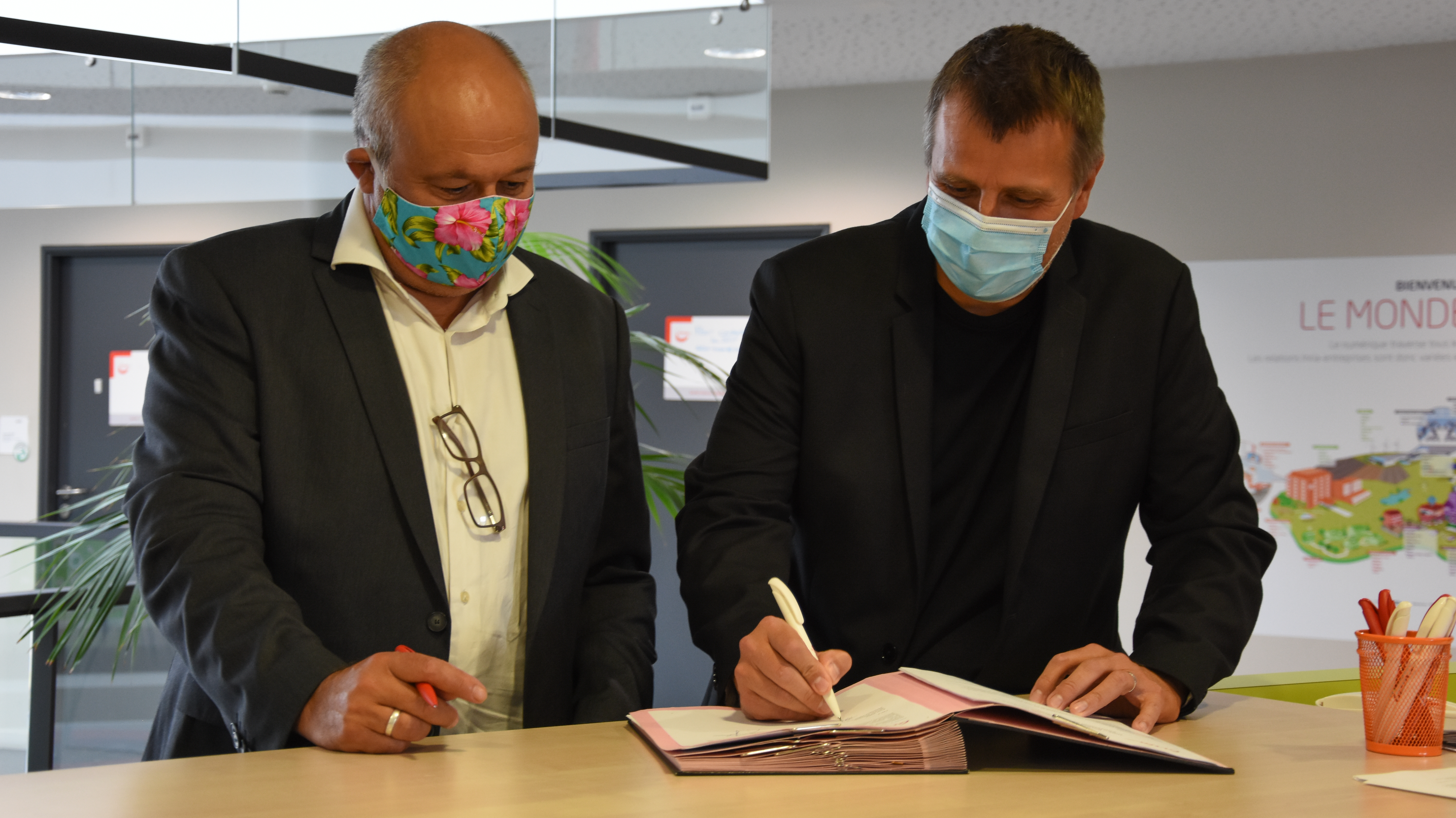Inria and Bordeaux Technowest promoting innovation
Date:
Changed on 13/10/2020

What is the most effective way of enabling society to benefit from the results of research? The creation of innovative digital start-ups is Inria’s preferred way of doing this. But finding a market for a research innovation is not always straightforward. Tech start-ups are long-term projects with short-term needs. Inria and Bordeaux Technowest have been working together for years on tackling this dichotomy, helping project leaders along what is often a rocky road. As we look to promote the emergence of innovative companies, it seemed only right to make our shared commitment official, as is now the case with the signing on 25 September.
After launching more than 160 start-ups over the past 30 years through the Institute’s partnership with Bpifrance and our own ‘Startup Studio’, Inria’s ambition is to move to the next level of tech entrepreneurship, with a target of 100 digital deep tech start-ups a year by 2023. Bordeaux Technowest’s record of having supported close to 250 start-ups since 2004 is indicative of the level of ambition shown in this key area.
The partnership with Bordeaux Technowest is centred around two main areas: supporting digital deep tech start-ups and consolidating France’s existing base of start-ups and small- and intermediate-sized companies in the digital deep tech sector.
A digital start-up project is primarily a means of coordinating a project by exploring aspects other than R&D, whether this is through understanding the needs of potential clients or users, devising a marketing strategy or accessing funding for the commercial deployment of technology-based products or services. The commitments we have entered into with our partner are very much in keeping with these support needs. We have no doubt that Bordeaux Technowest, as an incubator and tech hub with a range of different competencies and tools at their disposal, will be a major ally for us.
This agreement may only just have been signed, but this partnership goes back several years. Three start-ups have already received support.
iQSpot is a start-up that began life within the Phoenix project team. They offer a software platform specialising in intelligent building management, the goal being to reduce the energy consumption of buildings in the tertiary sector by getting occupants to play an active role. This platform, which is available on the cloud, connects all of the components of a building’s ecosystem, enabling them to interact with each other.
Nurea
Nurea is a start-up that began life within the Memphis project team. They develop decision support and implant customisation software for cardiovascular and thoracic surgery (e.g. aortic endoprostheses, tracheal stents, etc.). Through the use of innovative digital simulation technology, surgeons are supplied information automatically from scans, enabling them to make more accurate diagnoses and helping them to decide whether or not to operate, such as in the case of aortic aneurysms, for example. Being able to simulate the effect of an implant once fitted will also make it possible to customise these implants based on patients’ scans, before manufacturing them using 3D printing. Nurea is jointly supported by Unitec and Bordeaux Technowest.
Touch Sensity
Touch Sensity is a start-up that began life within the Auctus project team. They make objects, rigid and flexible materials, and liquids sensitive to physical interactions. The non-intrusive technology collects data on the pressure applied to a material, or how it has been stretched or its shape changed, while respecting the material’s topology and without the use of sensors.